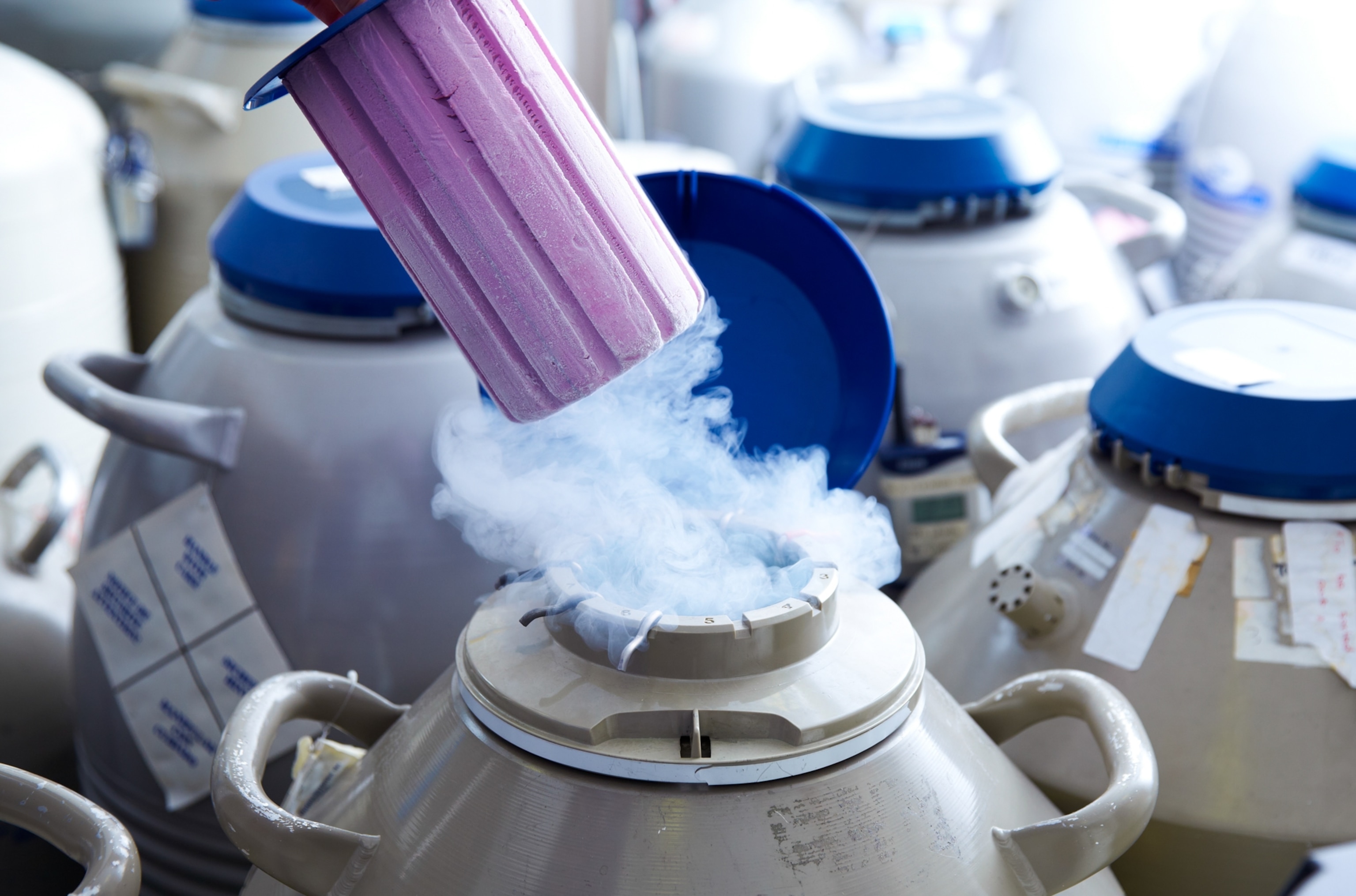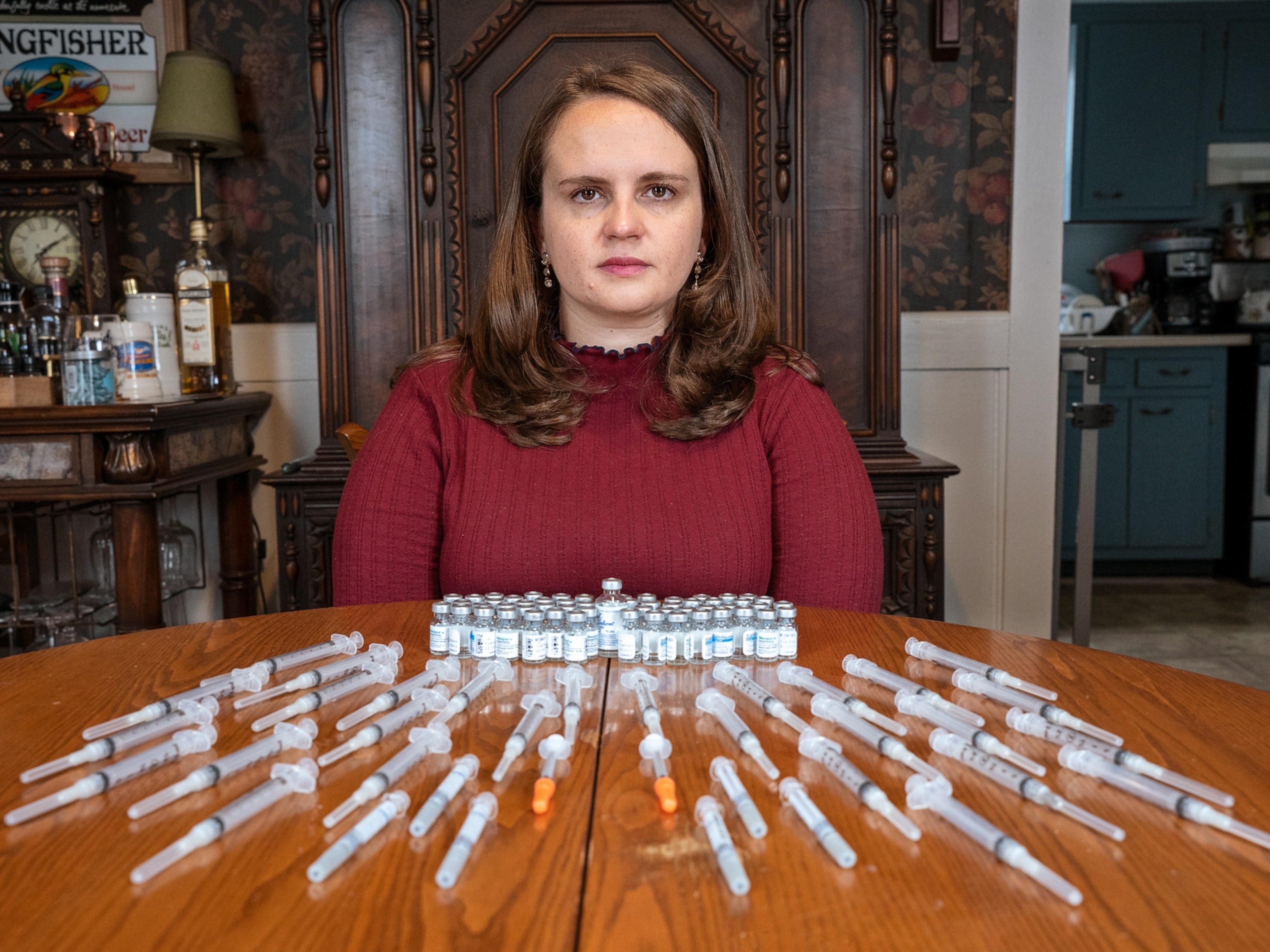
Social vs. medical egg freezing: What’s the difference?
Here’s what you need to know about the highly personal reasons some people choose to freeze their eggs.
To many women, freezing their eggs seems like a brilliant insurance policy for preserving their fertility into the future. The expectation is that by saving healthy, viable eggs while women are in the reproductive prime of life, they can buy themselves time to have a baby when it makes the most sense, whether for personal or medical reasons.
(Women Can Make New Eggs After All, Stem-Cell Study Hints)
The trend has certainly taken off with more women banking on this possibility: In 2019, 15,829 women in the United States froze their eggs to preserve their fertility, a 33-fold increase from 475 women in 2009, according to the Society for Assisted Reproductive Technology.
For any woman, “the number and quality of eggs decreases with age—egg freezing gives women the option to postpone childbearing while preserving their fertility,” explains Sarah Cascante, a reproductive endocrinologist and infertility fellow at the NYU Langone Fertility Center.
What’s in a name?
When women freeze their eggs because of personal reasons—a busy career, education pursuits, lack of a partner—their desire to extend their fertility is often referred to as social egg freezing. But some reproductive health experts say that is a misnomer: After all, it’s not as though a woman has her eggs frozen while she’s at a cocktail party or as if her eggs commingle with other women’s eggs in storage.
These physicians prefer to call the choice to freeze eggs for personal, professional, financial, or educational reasons, “elective” or “non-medical” egg freezing. This is typically done in anticipation of an age-related decline in fertility that begins at 30 and accelerates after age 35. A study in a 2019 issue of the Journal of Psychosomatic Obstetrics and Gynaecology found that women’s use of elective egg freezing is often motivated by fears of running out of time to form a conventional family, trouble finding a partner, worries about “panic partnering,” and a desire to avoid future regrets.
Medical egg freezing is a more straightforward matter. It’s often done because a woman has cancer and needs to undergo chemotherapy or radiation treatments (which could damage her eggs). These women are often young (under age 30), unmarried, and “vulnerable” because they’re facing the “double jeopardy” of cancer and loss of fertility, according to a study in a 2018 issue of the Journal of Assisted Reproduction and Genetics.
Another reason women might proactively freeze their eggs for medical reasons is needing to take a gonadotoxic medication—one that harms or destroy eggs—for an autoimmune disorder such as rheumatoid arthritis or lupus, notes Joseph Hill, a reproductive endocrinologist and fertility specialist at Fertility Centers of New England which has locations in Massachusetts, New Hampshire, and Maine.
Similarly, if a woman needs to have surgery to remove the ovaries for any reason, she may opt for egg freezing. The same is true for those who undergo gender affirmation surgery, in which case “women who transition into men often freeze their eggs before they take testosterone,” explains Sandra Ann Carson, a reproductive endocrinologist and obstetrician-gynecologist at Yale University.
A preservation process in common
Whether the egg freezing is done for medical or elective reasons, “the underlying procedure is the same,” explains Tarun Jain, a reproductive endocrinologist and medical director of the Center for Fertility and Reproductive Medicine at Northwestern Medicine in Chicago. In a nutshell, the process involves having a fertility evaluation, stimulating the ovaries with hormones, retrieving the eggs via a surgical procedure in which an ultrasound-guided needle is passed through the vagina to the ovaries to aspirate the eggs, then freezing them and placing them in storage. The price tag is similar—typically between $5,000 and $17,000, depending on where you live.
Normally, a woman will start ovarian stimulation on day two of her period, by self-administering daily injections of hormones, such as follicle stimulating hormone (which triggers the growth of ovarian follicles before ovulation), for 10 to 12 days to cause some of her eggs to ripen. But in the case of cancer, the timing of egg freezing can be tricky because it needs to be done before chemotherapy or radiation. “For patients with cancer, they need to have it done ASAP,” Jain says, so the protocol might begin right away rather than waiting for the arrival of a woman’s period.
Also, “with breast cancer, we may use certain medicines to keep estrogen levels lower to avoid aggravating the cancer,” Jain says. Indeed, a study in a 2022 issue of the journal Reproductive Biomedicine Online found that for women with breast cancer who began ovarian stimulation at varied times during the month, coadministration of letrozole (a drug that decreases the amount of estrogen produced by the body), and two cycles of ovarian stimulation led to greater egg retrieval than those who had the conventional protocol or just one cycle.
Regardless of why women freeze their eggs, it’s important to recognize that it’s not a fail-safe approach to having a baby. “A common misconception is that every egg you get will make a baby—that’s not true,” Cascante says. After all, there are lots of steps that come after freezing eggs—surviving the thaw process, in vitro fertilization (IVF), and implantation—that go into making a baby in this high-tech way. Research published in a 2022 issue of the journal Fertility and Sterility found that the final birth rate among women who froze their eggs for later use was 39 percent overall. In other words, as an insurance policy, egg freezing doesn’t provide a guaranteed payoff in every instance.







